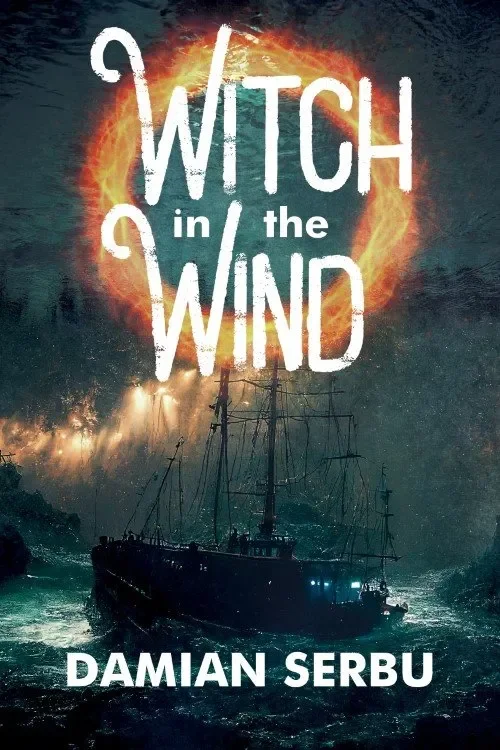Book Review: Witch in the Wind
Witch in the Wind, Damian Serbu, NineStar Press, June 18, 2024, print, 389.
Reviewed by Philip Janowski.
There is a psychological theory that divides nearly all people into three primary types, based on which part of themselves they are most influenced by: their physical body, their emotions, or their thinking mind. Alexander, the protagonist of Witch in the Wind, is an outstanding example of the emotional person. Alex, a survivor in a world often hostile to his existence (for reasons we will get to shortly), is constantly motivated by a desire to seduce others, have sex, or pine after lovers once he has found some perceived safety. Despite Witch in the Wind being an adventure story, the core sexual motivations color and influence the narrative at all times, and are the relative heart of the novel.
Even in moments of great danger, or when sitting in a dank, polluted prison cell amongst rats and garbage, Alex and the narrative are always ready to swerve into a sudden and graphic sex scene.
Reading the above, one may wonder why I do not describe Alex as a person primarily influenced by their physical body, rather than their emotions. Emotionally, Alex still has a strong idea of and imagination for love. Even when it results in the quick and easy betrayal of a former lover, it is after all, for the sake of an ideal that the entirely physical-oriented person would not have conceived of in the first place.
Let’s back up a bit and take a look at Alex’s situation. Alexander MacBeth is the son of a witch and a burgeoning witch himself, living in Salem, Massachusetts around the year 1700. After a confusing scene where his father instantly drops dead and his mother apparently commits suicide, Alex goes to live at a wheat mill with his abusive uncle. It is there that Alex meets Crispin Nottingham, a young nobleman from Boston. Alex and Crispin become lovers, despite the opposition of Crispin’s dangerous witch mother Portia. Alex, both a witch and homosexual in turn-of-the-century Salem, is soon targeted by the political and religious authorities. After Crispin breaks Alex’s heart, Alex flees for his life, choosing to become a pirate and attaching himself to handsome captain Henri the Twisted.
Aboard Henri’s ship, the All Hallows Eve, Alex meets a cast of colorful pirate characters. These include a woman in disguise as a man, an intelligent parrot, and a burly pirate possessed by a ghost. The ghost is determined to kill Alex. Alex, busy in love with Henri, decides the murderous spirit is not a big deal: “Alexander had no idea how to combat [them] so ignored [their] presence altogether.” Meanwhile, Alex makes himself useful by wielding witch magic: directing winds to help the sailing of the All Hallows Eve, healing injured pirates, and using a magical stone to divine the locations of other ships.
Witch in the Wind is recommended to readers looking for a salacious LGBTQ+ adventure-romance. The author has compared themselves to Anne Rice, fairly suggesting the shared focus of historical fiction involving magic and passionate romance.

